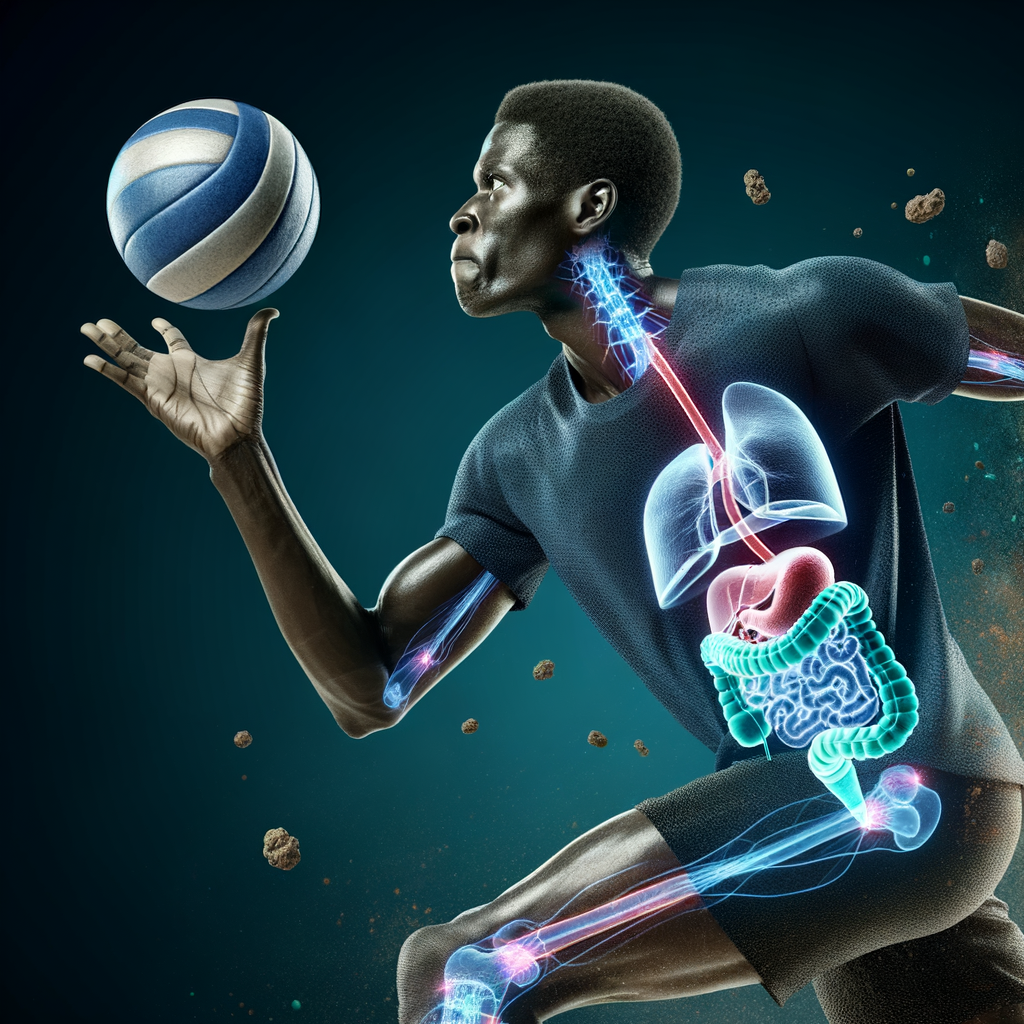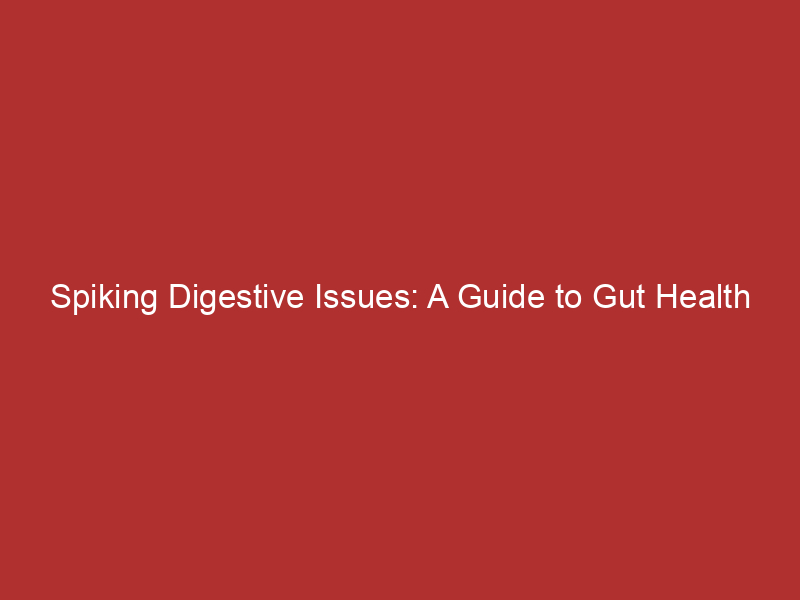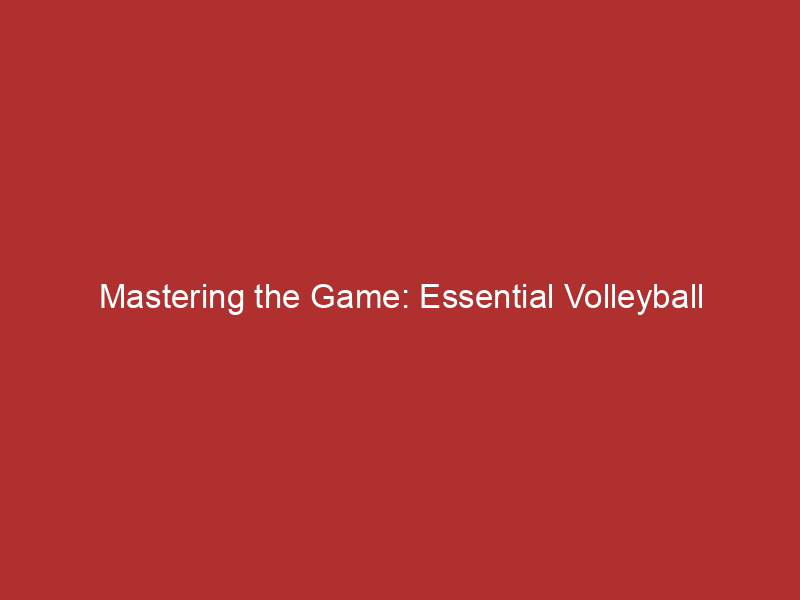
Introduction to Volleyball Player’s Gut Health
When it comes to athletic performance, we often focus on training, diet, and recovery. However, one aspect that often goes unnoticed is gut health. This is especially true for volleyball players, who face unique challenges due to the nature of their sport. In this section, we will explore the importance of gut health in sports and the specific challenges faced by volleyball players.
- Importance of Gut Health in Sports
- Specific Challenges for Volleyball Players
Gut health refers to the balance of microorganisms that live in the digestive tract. These organisms, which include billions of bacteria, viruses, and fungi, play a vital role in our overall health. They help digest our food, regulate our immune system, protect against other bacteria that cause diseases, and produce vitamins.
In sports, gut health is crucial for two main reasons. First, it aids in nutrient absorption. Athletes require a high amount of nutrients to fuel their bodies for intense training and competitions. A healthy gut ensures that these nutrients are properly absorbed and utilized. Second, a healthy gut can enhance the immune system, reducing the risk of illness that could sideline an athlete.
Volleyball players face specific challenges when it comes to maintaining gut health. The intense physical demands of the sport can lead to digestive issues. For instance, the high-intensity training can divert blood flow away from the gut, leading to discomfort and impaired digestion.
Moreover, the stress of competition can also impact gut health. Stress can alter the gut microbiota, leading to symptoms like bloating, cramping, and even diarrhea. Therefore, volleyball players need to pay special attention to their gut health to ensure optimal performance on the court.
In the following sections, we will delve deeper into understanding digestive wellness in athletes, maintaining gut health for athletic performance, practical tips for volleyball players, and long-term strategies for athlete’s gut health maintenance. Stay tuned to learn more about this crucial aspect of athletic performance.
Understanding Digestive Wellness in Athletes
For athletes, maintaining a healthy digestive system is crucial for optimal performance. This section will delve into the science behind the digestive wellness of athletes, focusing on how exercise impacts digestion and the unique digestive needs of athletes.
The Science Behind Athlete’s Digestive Wellness
Understanding the science behind an athlete’s digestive wellness can help us appreciate the unique needs and challenges they face. Let’s explore this in more detail.
- How Exercise Impacts Digestion
- Unique Digestive Needs of Athletes
Exercise plays a significant role in promoting healthy digestion. When we exercise, our bodies increase blood flow to our muscles and decrease blood flow to our digestive system. This can speed up the process of digestion, helping to prevent constipation and promote regular bowel movements. However, intense exercise can sometimes lead to digestive issues such as stomach cramps or diarrhea. It’s essential for athletes to find a balance that works for their bodies.
Athletes have unique nutritional needs due to the high level of physical activity they engage in. They often require a higher intake of calories, protein, and certain vitamins and minerals to support their training and recovery. This means they need a well-functioning digestive system to absorb these nutrients effectively. Athletes may also need to eat at specific times around their training schedule, which can impact their digestion. Understanding these unique needs can help athletes optimize their diet and performance.
In conclusion, understanding the science behind an athlete’s digestive wellness is crucial for their performance. By knowing how exercise impacts digestion and the unique digestive needs of athletes, they can make informed decisions about their diet and training routine.
Case Study: Digestive Health in Professional Volleyball
Professional volleyball players, like all athletes, need to maintain a healthy digestive system to perform at their best. However, they often face unique challenges that can impact their gut health. Let’s delve into some of the common digestive issues faced by volleyball players and how they manage their gut health.
- Common Digestive Issues in Volleyball Players
- Dehydration: Volleyball players can lose a lot of fluids during games and practices, which can lead to dehydration. This can cause constipation and other digestive problems.
- Stomach Cramps: The physical exertion and stress of competitive play can lead to stomach cramps, which can disrupt a player’s performance.
- Food Intolerances: Some players may have food intolerances that can cause digestive issues, such as bloating or diarrhea.
- How Professional Players Manage Their Gut Health
- Hydration: Players make sure to stay well-hydrated, especially during games and practices, to prevent dehydration and its associated digestive issues.
- Diet: A balanced diet rich in fiber, fruits, vegetables, and lean proteins can help maintain a healthy digestive system. Players often work with nutritionists to create a diet plan that suits their needs.
- Stress Management: Stress can exacerbate digestive issues, so players often use techniques like meditation, deep breathing, and yoga to manage stress levels.
- Regular Check-ups: Regular medical check-ups can help detect and address any potential digestive issues early.
Volleyball players often experience digestive issues due to the intense physical demands of their sport. These can range from mild discomfort to more serious conditions. Some of the most common issues include:
Professional volleyball players take several steps to maintain their gut health and avoid digestive issues. Here are some of the strategies they use:
In conclusion, maintaining digestive health is crucial for professional volleyball players. By understanding the common digestive issues they face and the strategies they use to manage their gut health, we can gain valuable insights into the importance of digestive wellness in athletes.
Maintaining Gut Health for Athletic Performance
As an athlete, maintaining optimal gut health is crucial for your performance. Here are some key strategies to help you achieve this.
Key Strategies for Gut Health in Sports
- Dietary considerations
- Importance of hydration
- Role of probiotics and prebiotics
Your diet plays a significant role in maintaining gut health. Consuming a balanced diet rich in fiber, lean proteins, and healthy fats can help maintain a healthy gut. Foods like fruits, vegetables, whole grains, and lean proteins are excellent choices. Avoiding processed foods, high-sugar foods, and excessive caffeine can also contribute to better gut health.
Staying hydrated is not only essential for overall health, but it’s also crucial for your gut health. Water helps break down food so your body can absorb the nutrients. It also softens stool, which can help prevent constipation. Athletes should aim to drink at least 8 glasses of water per day, and more if they are active.
Probiotics are beneficial bacteria that can help maintain a healthy balance in your gut. They can be found in foods like yogurt, kefir, and fermented foods. Prebiotics, on the other hand, are types of dietary fiber that feed the friendly bacteria in your gut. Foods like bananas, onions, garlic, and whole grains are good sources of prebiotics. Including both probiotics and prebiotics in your diet can help maintain a healthy gut.
Remember, maintaining gut health is a long-term commitment. It’s not just about what you eat, but also about maintaining a healthy lifestyle. Regular exercise, adequate sleep, and stress management are also critical for gut health.
Wellness for Athletes: Beyond the Gut
As an athlete, maintaining your gut health is crucial for optimal performance. But did you know that your overall wellness, including stress management and sleep patterns, can also significantly impact your digestive health? Let’s delve deeper into these aspects.
- Impact of Stress on Digestion
- Importance of Sleep for Gut Health
Stress can have a profound effect on your digestive system. When you’re stressed, your body goes into “fight or flight” mode, which can disrupt your digestive process. This can lead to various issues such as stomachaches, constipation, or diarrhea. In a study conducted by the American Psychological Association, it was found that 34% of Americans who reported stress in the past month also reported experiencing a physical symptom of stress, such as an upset stomach.
As an athlete, this can hinder your performance and overall well-being. Therefore, it’s important to incorporate stress management techniques into your routine, such as deep breathing exercises, yoga, or even just taking time out to relax and unwind.
Getting a good night’s sleep is not just crucial for your energy levels and recovery, but it also plays a significant role in maintaining your gut health. Research has shown that lack of sleep can alter the gut microbiota, the community of microorganisms living in your intestines, which can lead to digestive issues and impact your athletic performance.
According to a study published in the Journal of Clinical Sleep Medicine, individuals who got less than six hours of sleep per night had a less diverse gut microbiota compared to those who slept for seven to eight hours. As an athlete, ensuring you get adequate sleep is a key part of maintaining a healthy gut and achieving your best performance.
In conclusion, while dietary considerations, hydration, and the use of probiotics and prebiotics are all important for maintaining gut health, it’s also essential to consider factors beyond the gut. Managing stress and ensuring you get enough sleep can significantly impact your digestive health and overall athletic performance.
Volleyball and Digestive Health: Practical Tips
As a volleyball player, maintaining a healthy digestive system is crucial for optimal performance. Here are some practical tips on how to manage your diet before the game.
Pre-Game Nutrition for Volleyball Players
What you eat before a game can significantly affect your performance. It’s essential to focus on foods that provide energy and promote good digestion.
- Best foods for energy and digestion
- Timing meals and snacks
Complex carbohydrates like whole grains, fruits, and vegetables are excellent sources of energy. They are also rich in fiber, which aids digestion. Protein-rich foods like lean meats, eggs, and dairy are also essential for muscle repair and recovery.
Timing your meals is just as important as what you eat. A general rule of thumb is to have a full meal 3-4 hours before the game and a light snack 1-2 hours before. This gives your body enough time to digest the food and convert it into energy.
Remember, everyone’s body is different. What works for one person may not work for another. It’s important to listen to your body and adjust your pre-game nutrition accordingly.
By following these practical tips, you can ensure that your digestive health is in top shape for every volleyball game. Not only will this improve your performance, but it will also contribute to your overall health and wellbeing.
Post-Game Recovery and Gut Health
After a tough volleyball game, it’s essential to focus on recovery and gut health. This process involves replenishing nutrients and handling any digestive issues that may arise.
- Replenishing Nutrients After a Game
After a game, your body has used up a lot of energy and nutrients. It’s crucial to replenish these nutrients to aid recovery and prepare for the next game. Here’s how:
Hydrate: Water is essential for digestion and nutrient absorption. After a game, drink plenty of fluids to replace the water lost through sweating.
Eat a balanced meal: A post-game meal should include proteins for muscle repair, carbohydrates to replenish energy stores, and fats to aid in nutrient absorption. A meal could be as simple as a chicken sandwich with a side of fruit.
Include probiotics: Probiotics, found in foods like yogurt, can help maintain a healthy gut. They aid in digestion and can help your body absorb nutrients more effectively.
- How to Handle Common Digestive Issues
It’s not uncommon for athletes to experience digestive issues due to the physical stress of a game. Here are some tips to handle these issues:
Stay hydrated: Dehydration can lead to constipation. Make sure to drink plenty of water before, during, and after a game.
Eat fiber-rich foods: Foods high in fiber, like fruits and vegetables, can help prevent constipation and promote a healthy gut.
Limit intake of fatty foods: Fatty foods can slow down digestion and may lead to discomfort. Try to limit your intake of these foods, especially before a game.
Consult a professional: If digestive issues persist, it may be best to consult a healthcare professional or a dietitian. They can provide personalized advice based on your specific needs and conditions.
In conclusion, post-game recovery and gut health are crucial for any volleyball player. By replenishing nutrients and managing digestive issues, you can ensure your body is ready for the next game and maintain a healthy gut.
Athlete’s Gut Health Maintenance: Long-Term Strategies
For athletes, maintaining gut health is not just a short-term goal but a long-term commitment. This section will provide you with strategies to build a gut-healthy diet and adapt it to your training and game days.
Building a Gut-Healthy Diet
Building a gut-healthy diet is a crucial part of maintaining digestive wellness. Here are two key aspects to consider:
- Key components of a gut-healthy diet
- How to adapt your diet for training and game days
A gut-healthy diet is rich in fiber, lean proteins, and healthy fats. It includes a variety of fruits, vegetables, whole grains, and lean meats. Probiotics, found in foods like yogurt and fermented foods, are also essential as they promote good bacteria in the gut.
| Food Group | Examples |
|---|---|
| Fruits and Vegetables | Apples, Bananas, Carrots, Spinach |
| Whole Grains | Quinoa, Brown Rice, Oats |
| Lean Meats | Chicken, Turkey, Fish |
| Probiotic Foods | Yogurt, Sauerkraut, Kimchi |
On training days, athletes need more energy. Therefore, it’s essential to increase your intake of complex carbohydrates like whole grains and starchy vegetables. On game days, focus on easily digestible foods to avoid any digestive discomfort. Remember, hydration is key, so drink plenty of water.
Remember, a gut-healthy diet is not a one-size-fits-all solution. What works for one athlete may not work for another. It’s important to listen to your body and adjust your diet accordingly. Consult with a nutritionist or dietitian for personalized advice.
Staying Gut Healthy Off-Season
Even when the volleyball season is over, maintaining your gut health is crucial. The off-season is an excellent opportunity to rest, recover, and prepare your body for the next season. Let’s delve into how to keep your gut healthy during these periods and the long-term strategies you can adopt for digestive wellness.
- Maintaining gut health during rest periods
- Long-term strategies for digestive wellness
During the off-season, it’s easy to let go of your dietary discipline. However, this is the time to focus on maintaining a balanced diet rich in fiber, lean proteins, and healthy fats. Consuming probiotics, either through supplements or fermented foods, can also help maintain a healthy gut. Regular exercise, even if it’s not as intense as your in-season training, can also promote gut health. Remember, a healthy gut contributes to a strong immune system, which is essential for your overall health and athletic performance.
Long-term gut health goes beyond just your diet. It involves a holistic approach that includes stress management, adequate sleep, and regular exercise. Stress can negatively impact your gut health, so finding ways to relax and unwind is essential. This could be through meditation, yoga, or simply spending time doing things you love. Adequate sleep is also crucial for gut health. Aim for at least 7-9 hours of sleep per night. Regular exercise, even during the off-season, can help maintain a healthy gut. It doesn’t have to be intense; even light activities like walking or yoga can be beneficial.
In conclusion, maintaining gut health during the off-season and adopting long-term strategies for digestive wellness are crucial for any athlete. Remember, a healthy gut contributes to a strong immune system, better athletic performance, and overall well-being. So, take care of your gut, and it will take care of you!






